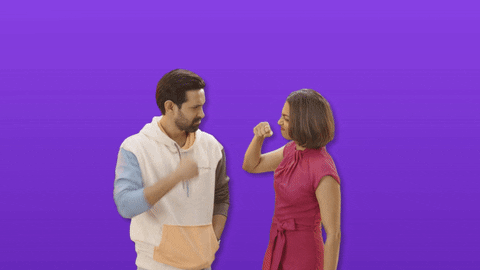- Powered by Dyslexia
- Posts
- The Friend Zone
The Friend Zone
Why Dyslexics Over 30 Struggle to Make Friends

The loneliness epidemic isn’t coming, it’s been here and hitting dyslexics like a freight train.
Adults with dyslexia face higher rates of anxiety, depression, low self-esteem, and social withdrawal compared to neurotypicals. We isolate and are more likely to retreat from the very social connections our mental health desperately needs.
Society tells us The Friend Zone is where relationships go to die. For dyslexics 30+, it's actually where we need to live.
While everyone else seems to effortlessly navigate happy hours and weekend hangouts, you're running a complex background program that's burning through your social energy before you even open your mouth.
You're masking, compensating, and working three times harder just to appear "normal" in basic social interactions.
Sprinkle in some anxiety around work and social settings where literacy demands feel overwhelming, and you've got a perfect recipe for social avoidance.
The Adult Friendship Energy Crisis

If no one’s told you - adult friendships require a real energy investment.
Remember summer camp? Elementary school? The neighborhood hangs?
Friendships felt effortless because proximity did the heavy lifting. You spent hours together with no jobs, spouses, mortgages, or family obligations competing for your attention.
As adults, we've been sold this myth that friendships should work like they did when we were kids.
Spoiler alert: Adult friendships need the same hustle and flow as any other important Life Goal.
The Liking Gap

Dr. Marisa Franco's research reveals “The Liking Gap”. It’s that thing where we consistently underestimate how much people actually like us after hanging out or talking.
Basically, our brain convinces us that our interactions went worse than they actually did.Yet in reality, studies show most people are welcoming and The Liking Gap comes from our social self-doubt.
Unfortunately, many dyslexics turn the gap against themselves. Instead of seeing it as a misconception that happens to many, they use it as proof that they're not worth the effort. This becomes a get-out-of-jail-free card for avoiding the energy investment that adult friendships require.
"They probably don't like me anyway/ why bother wasting my energy trying?”
The Mental Prep Advantage

Here's how you can improve your friendship game. Your Social Butterfly Toolkit should include:
A Research Phase: Before meeting someone new or going to social events, gather some light intel. Check their social media, LinkedIn profile, look for common connections or shared interests. Call it conversation kindling.
Safety Net Stories: Have two flexible stories about yourself. Think of these like accordions; the musical instrument that stretches and compresses.
One story version is 30 seconds for casual encounters while the other can stretch to 2 or 3 minutes for deeper conversations. These aren’t memorized speeches, they’re conversation lifelines that guarantee you always have something authentic to share about yourself in case you draw a blank.
Question Bank: Keep two open-ended questions ready to deploy.
Open-ended questions are ones that start with "what," "how," "why," or "tell me about". They can't be answered with just yes or no.
The magic isn't in the questions themselves but how they shift the conversation.
When you ask genuine, open-ended questions, the other person talks more, which automatically makes you a better listener. And people like good listeners.
The Listening Loop: Open-ended questions → They talk more → You listen actively → They feel heard → They like you more → Friendship foundation gets stronger.

The Reality Check
You can't expect friendship magic after two hangs.
The Mere Exposure Effect: The more someone sees you, interacts with you, experiences your consistency, the more they tend to like you. It's the same way advertising works, except here, you're adver-teasing your authentic self.
Research from the University of Kansas Study on Building Trust and Connection shows it takes consistent interaction over approximately 90 days to build real trust and connection. That's roughly three months of regular contact - not three hangouts spread across six months.
This is where the Mere Exposure Effect becomes your best friend = Consistency.
And lucky for us, with the internet, proximity doesn't have to be physical anymore. Over the last few years, I've made solid platonic friendships in virtual communities and heart-centered digital spaces. I've even met a few of these folks in person here in the US and traveling overseas.
The Friend Zone

You can find meaningful friendships as a dyslexic over 30. Learning to navigate and thrive in platonic relationships isn't just nice to have, it's key for mental health, personal and professional growth.
After 85 years of research, the finding is clear: Your friendships are as important to your health as your diet and exercise.
So how bout it LEX!
Meet me in the Friend Zone?
Know someone who’d connect with this? Share it with them.
More Powered to the People!
Reply